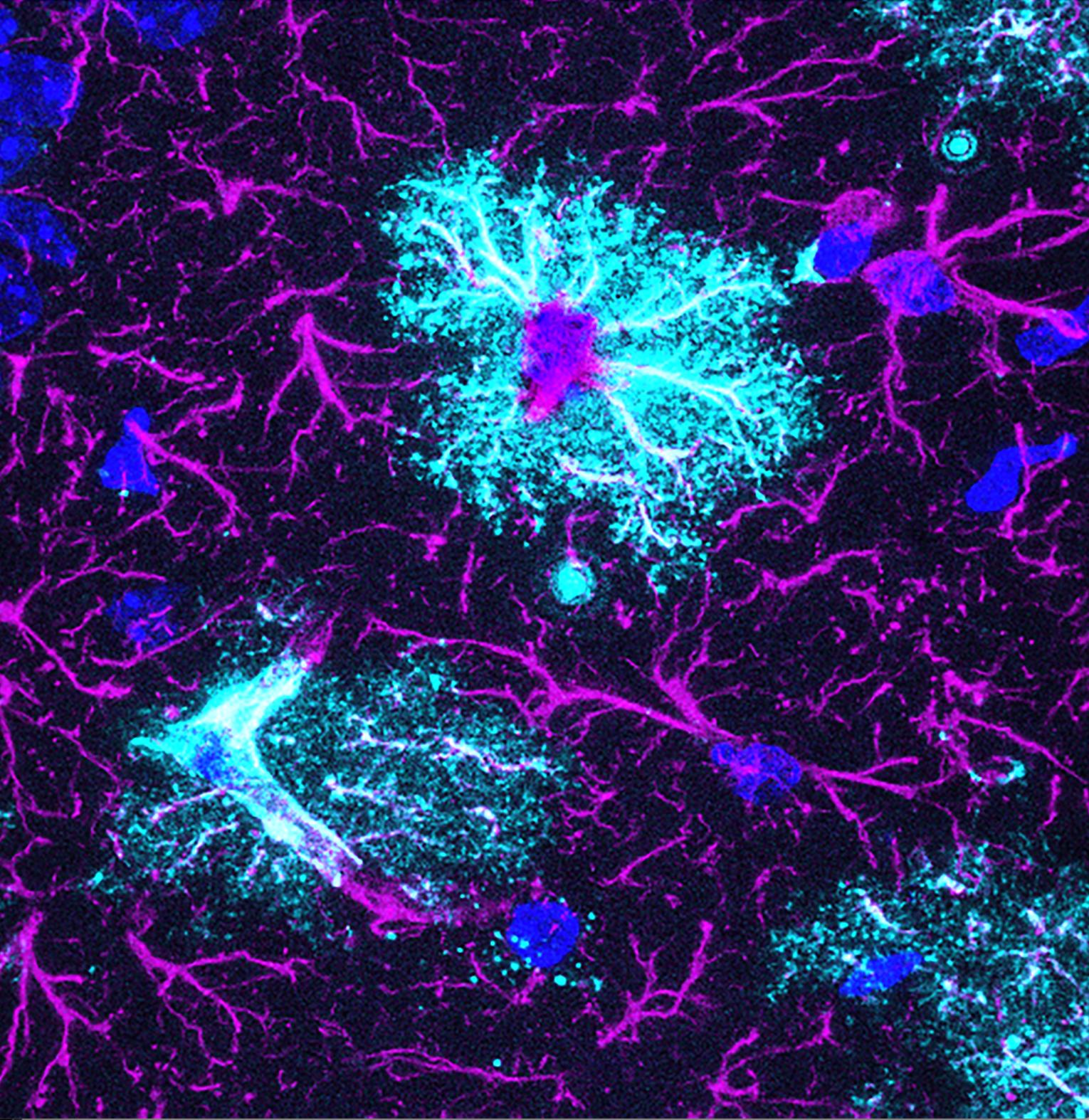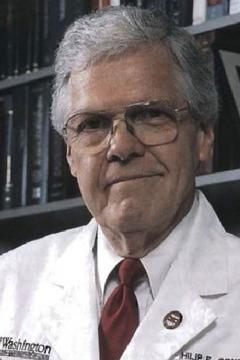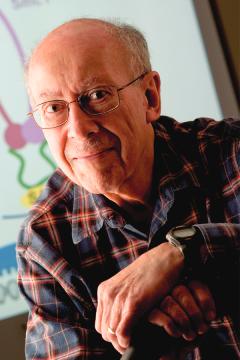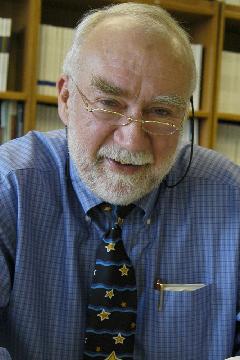Commendations & Commencements
Welcome

Dr. Minnjuan Flournoy Floyd joined NIDDK as a program director within the Division of Diabetes, Endocrinology and Metabolic Diseases overseeing research for adults with type 2 diabetes at the health system, organization, and provider levels. Prior to joining NIDDK, she served as a social and behavioral sciences administrator at the National Institute of Drug Abuse.
Congratulations

Dr. Ad Bax, section chief of Biophysical Nuclear Magnetic Resonance Spectroscopy in the Laboratory of Chemical Physics at NIDDK, was elected as a Fellow to the Royal Society. He is recognized for developing numerous nuclear magnetic resonance methods to study molecular structure and motion, as well as his pioneering role in adapting these methods to investigate macromolecule structures and interactions.

Dr. Susan Buchanan, Deputy scientific director of the Division of Intramural Research and chief of the Laboratory of Molecular Biology, received the Biophysical Society’s 2024 Anatrace Membrane Protein Award for her impactful contributions to the understanding of outer membrane protein folding and insertion, and for structural insights into small and large molecule active transport across the outer membrane. She was honored at the Society’s 68th Annual Meeting in February.

Dr. G. Marius Clore, section chief of Molecular and Structural Biophysics in NIDDK’s Laboratory of Chemical Physics, was elected as a Fellow of the U.K. Academy of Medical Sciences. He is being recognized for his technical contributions to the foundations of modern biomolecular nuclear magnetic resonance (NMR), his creation of the standard method of annealing for NMR structure determination, and his discovery of transient rare states of proteins that play a key role in function and pathology, including aggregation and fibril formation.

Dr. T. Jake Liang, chief of NIDDK’s Liver Diseases Branch, won the Hepatitis B Foundation’s Baruch S. Blumberg Prize, the organization’s highest honor, named for the Nobel Prize winner in Medicine and Physiology who discovered the hepatitis B virus. Liang was recognized for being at the forefront of nearly every major advance in care for people with hepatitis B and D for more than two decades, contributing advances to basic science and clinical care of those with chronic hepatitis B.

Dr. Jürgen Wess, section chief of Molecular Signaling in NIDDK’s Laboratory of Bioorganic Chemistry, was elected as a Fellow to the American Association for the Advancement of Science (AAAS). He is being recognized for his distinguished contributions to molecular and translational pharmacology, particularly related to the pharmacology, physiology, and pathophysiology of muscarinic acetylcholine receptors, which regulate activities such as food intake and learning.


Dr. Douglas Forrest, section chief of the Nuclear Receptor Biology Section in the Laboratory of Endocrinology & Receptor Biology, and Dr. Lily Ng, staff scientist in NIDDK’s Laboratory of Endocrinology & Receptor Biology, won the Endocrine Society’s 2024 Endocrine Images Art Competition grand prize for their image of an astrocyte cell expressing type 2 (DIO2) deiodinase, an enzyme necessary for brain development that regulates the availability of thyroid hormone for neurons. They were honored at the Excellence in Endocrinology Awards event in May.

Fond Farewell

Dr. Jeffrey Kopp, chief of the Kidney Disease Section in our intramural Kidney Diseases Branch since 2013, retired after decades of service to NIDDK. Kopp joined NIH as a medical staff fellow in 1987 and came to NIDDK in 1995 as a Senior Investigator. Among his many scientific accomplishments, he has led important studies on focal segmental glomerulosclerosis (FSGS), a disease in which scarring occurs in the glomeruli, the tissue structures in the kidney that filter waste from the blood. For example, his research led to the discovery that chromosome 22 harbors a major risk locus for kidney disease in African Americans. A particular variant in the APOL1 gene (encoding the protein apolipoprotein L1) accounts for much of the increased risk that some people of African descent have for both FSGS and a similar disorder associated with HIV infection. About 13% of African Americans carry two risk copies of this gene and perhaps 20% will develop chronic kidney disease as a result.
Kopp has also been a dedicated clinician and educator, serving as a nephrologist at the NIH Clinical Center and as a professor at the Uniformed Services University of the Health Sciences. As a United States Public Health Service Officer, he deployed to three hurricanes (Katrina 2005, Wilma 2005, and Ike 2008), providing care to special needs patients in emergency shelters. He will continue to serve at NIDDK as a Special Volunteer in the Kidney Diseases Branch.
In Memoriam

Dr. Philip Cryer, whose career at the Washington University School of Medicine in St. Louis spanned more than four decades, died on February 24, 2024. Cryer led the university’s General Clinical Research Center for more than 30 years. He also served as the longtime director of the Division of Endocrinology, Metabolism & Lipid Research as well as a professor of endocrinology and metabolism. He was an NIH and NIDDK grantee for more than three decades, including an NIH Merit Award, which provides extended grant support to investigators with outstanding records of scientific achievement. Cryer was internationally known for his research on hypoglycemia, including the physiology behind glucose counter-regulation – which are the mechanisms that prevent or correct hypoglycemia. This research led to the development of approaches to identify, prevent, and treat hypoglycemia in people with diabetes.

Dr. Gary Felsenfeld, who was with NIDDK for more than 60 years, died on May 1, 2024, at the age of 95. Felsenfeld was a founding member of NIDDK’s Laboratory of Molecular Biology, becoming the lab’s chief in the late 1990s. He joined the Public Health Service in 1956 to work at the NIH’s National Institute of Mental Health where he played a key role in discovering the first triple-stranded nucleic acid molecule. In 1961, Felsenfeld joined NIDDK, where he shared in the discovery of the first erythroid-specific transcription factor and began investigating chromatin boundary regions, eventually identifying the protein CTCF as a major genomic boundary protein. This discovery led to research on long-range interactions in the nucleus that affect insulin regulation in human pancreatic cells.
Over the course of his career, Felsenfeld mentored many trainees, published more than 250 primary research papers, and garnered numerous awards. In addition to being a great scientist, mentor, and leader, Felsenfeld was a beloved colleague and friend with a great sense of humor and a warm, generous nature. Learn more about Felsenfeld and his distinguished career in the NIH Record, his 2020 oral history and Getting to Know feature in the 2021 summer issue of the NIDDK Director’s Update.

Dr. William Henrich, a former NIDDK Advisory Council member and president of the University of Texas Health Science Center at San Antonio, died on March 14, 2024. He was a board-certified nephrologist and served as President of the American Society of Nephrology. He authored one of the world’s most widely used dialysis textbooks, Henrich’s Principles and Practice of Dialysis, and published more than 300 original articles and chapters during his career.

Dr. Jerry Palmer, longtime NIDDK grantee and professor emeritus at the University of Washington in Seattle, died on February 28, 2024. Palmer was a professor in the Division of Metabolism, Endocrinology, and Nutrition in the University of Washington’s Department of Medicine for 45 years. He was also chief of endocrinology at the VA Puget Sound Health Care System in Seattle for 35 years. Palmer’s many scientific achievements included significant contributions to NIDDK-supported clinical trials that revolutionized diabetes care. For example, he served on the Steering Committee for the Diabetes Control and Complications Trial (DCCT) from 1982 to 1993. He also played a central role in the Epidemiology of Diabetes Intervention and Complications Trial (EDIC) and was involved in both the Diabetes Prevention Trial of Type 1 Diabetes and TrialNet. Palmer also created the UW Diabetes Care Center, which he directed for 12 years.
